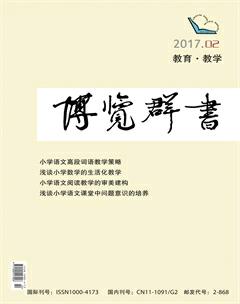The Role of Context in Learning to Teach Writing
Xinyan+Li
Abstract : By using qualitative study, this article describes how three beginning elementary teachers in urban schools struggled with policy, students, and their own commitment of learning to teach writing to their students. Findings indicate that beginning teachers learned to teach writing by drawing on a variety of knowledge sources, that beginning teachers writing instruction was heavily influenced by various aspects of their individual teaching contexts, and that because these various aspects of teaching context often conflicted with each other, creating tensions for the beginning teacher, learning to teach writing was strongly shaped by how each teacher learned to manage the various conflicting aspects of her individual teaching context. Implications for teacher education emerged and include focusing on writing pedagogy, examining teaching contexts and decision making within various settings, and using case studies to examine how experienced teachers work successfully within a variety of teaching contexts.
Keywords: writing pedagogy; beginning teachers; learning to teach; teaching context; urban schools
Culturally Responsive Pedagogy
Villegas and Lucas (2002) suggested that teacher preparation programs make diversity central to their mission, recruit and retain students and faculty of color, work with the arts and sciences within their institutions, invest in faculty development work, and collaborate with teachers, schools, and districts that are culturally responsive. If we consider the example of Aileens tension regarding the use of Standard English and her students use of BVE, we can imagine how working with Ladson-Billingss (1995, 2001) notion of culturally responsive pedagogy might have helped her recognize and think about that tension in more sophisticated ways. This study suggests that more is needed to prepare beginning teachers to enact culturally responsive pedagogies.
Learning About Policy
My research confirms that beginning teachers do not know how to work with policy mandates and suggests that they should be taught about policy prior to their first teaching job. Bethany and Celina felt overwhelmed at times by the policy mandates in their schools, even going so far as to claim ignorance of the role that the No Child Left Behind Act played in their schools. Examining various policies at federal, state, and district levels could more adequately prepare teacher candidates for understanding and managing the policy environment they will eventually find themselves in. Teacher preparation courses might increase awareness of policy by addressing how these various levels of policy work together and how they create tensions for the teachers who are affected by them. Helping teacher candidates examine the decisions made by experienced teachers through the use of case materials would help them think about actions such as managing, navigating, juggling, and finessing.
Although all settings have unique and complex contexts, the tensions that existed in the studys setting seem particularly tied to urban contexts. Many urban schools are considered failing based on annual yearly progress and have been awarded Reading First grants. Urban schools traditionally have fewer financial resources, less technology, and fewer course offerings for their students. Urban schools often have unstable student populations, thus, leading to teacher changes well into and across the year. Therefore, it seems clear that helping beginning teachers learn about the various aspects of urban, suburban, rural, and private schools would initiate both internal and schoolbased conversations about the role of the school context in learning to teach.
Conclusion
This research suggests that the role of teaching context influences pedagogical decisions and that teaching context should, at the very least, be considered among the kinds of knowledge needed for beginning teachers. It also suggests the need for more work in this area to understand more fully the role of teaching context in learning to teach writing. It is likely that teachers knowledge development can be understood only in terms of understanding individual teaching context and through further exploration of the experiences of beginning teachers. What beginning teachers need to know must include a focus on the multiple, overlapping, and often tenuous contexts within which learning to teach occurs.
References:
[1] Anyon, J. (1997). Ghetto schooling: A political economy of urban educational reform. New York: Teachers College Press.
[2] Britzman, D. P. (1991). Practice makes practice: A critical study of learning to teach. Albany: State University of New York Press.
[3] Chubb, J. E., & Moe, T. M. (1990). Politics, markets, &Americas schools. Washington, DC: Brookings Institution.

